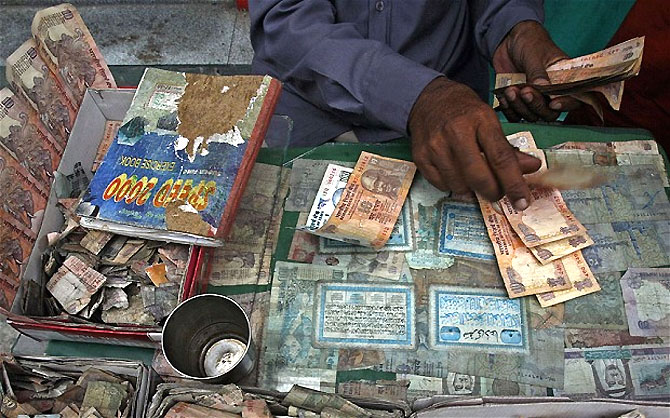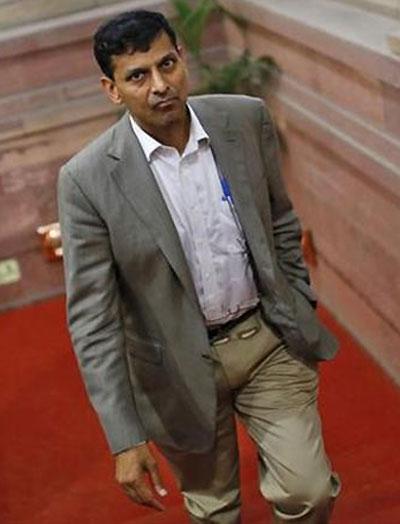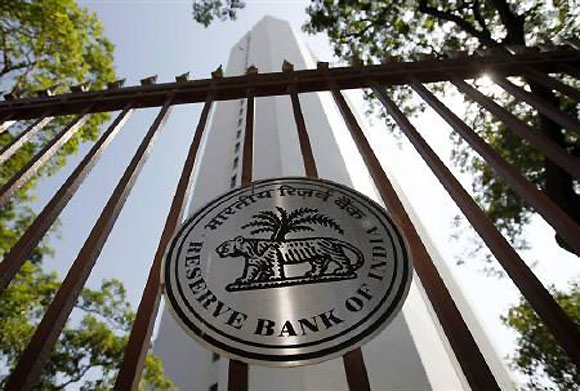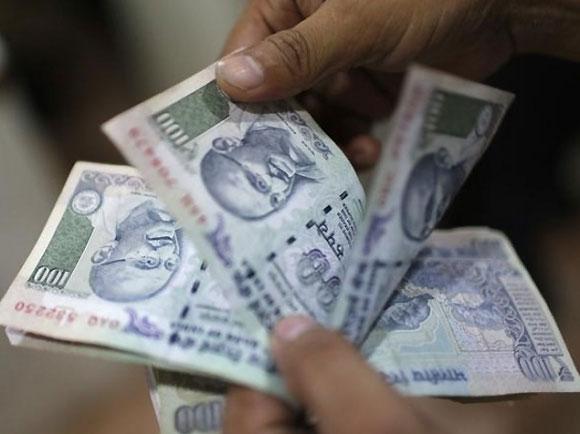 | « Back to article | Print this article |
Why one should avoid forecasting markets
The government’s economic policy makers would produce far greater confidence in market participants if they stopped trying to second-guess the markets’ decisions.
Finance Minister P Chidambaram told Parliament on Tuesday that the rupee ‘had overshot its true value’.
Meanwhile, outside, the rupee continued to fall.
It hit an exchange rate of 66 against the US dollar in the afternoon, flew past that, and closed at a new record low of 66.19, down about three per cent for the day.
Meanwhile, the stock market also slumped; the Bombay Stock Exchange’s Sensex closed 590 points, or 3.2 per cent, lower -- and it, too, passed a major psychological barrier, of 18,000 points, to close at 17,968.
Click NEXT to read further. . .
Why one should avoid forecasting markets
Mr Chidambaram’s statement during Question Hour in the Rajya Sabha, which was being roundly ignored by traders even as he made it, was a repetition of a claim he made over the weekend in Mumbai, India’s financial capital, when he said the rupee was ‘overvalued’.
Many would wonder how, precisely, Mr Chidambaram is coming to this conclusion.
Is he willing to share his economic model with observers?
If not, it would be better for all concerned if he stuck to policy and stopped being a market analyst.
In Mr Chidambaram’s defence, this tendency to play market analyst is endemic at the top levels of the United Progressive Alliance government.
Click NEXT to read further. . .
Why one should avoid forecasting markets
Sadly, such predictions go awry as often as their predictions about macroeconomic variables such as inflation or economic growth.
For example, C Rangarajan, chairman of the Prime Minister’s Economic Advisory Council, said on Monday that economic growth would hit 5.5 per cent in 2013-14. Puzzled economists sat by calculators wondering exactly where Mr Rangarajan thought this growth would come from.
Meanwhile, he insisted that capital flows from abroad would increase and 'stabilise' the rupee ‘in the near term’.
Click NEXT to read further. . .
Why one should avoid forecasting markets
Needless to say, the markets don’t seem to agree.
And then there’s the deputy chairman of the Planning Commission, Montek Singh Ahluwalia, who said in a television interview that ‘the markets have already factored in tapering’ [of quantitative easing by the United States Federal Reserve].
Again, Mr Ahluwalia’s expertise as an analyst of market information came under close scrutiny.
The government’s economic policy makers would produce far greater confidence in market participants if they stopped trying to second-guess the markets’ decisions.
Click NEXT to read further. . .
Why one should avoid forecasting markets
After all, making forecasts about how the rupee would behave in the short term could be tricky.
Instead, they should work on their areas of expertise -- reintroducing growth-supportive policy.
The time to talk the markets up has passed.
The time has now come for real action.
Instead of making futile claims about the ‘true value’ of the rupee, the government should lay out its plan to push exports, reduce expenditure and subsidies, and make India an easier place to do business.
The markets will then take care of themselves.




